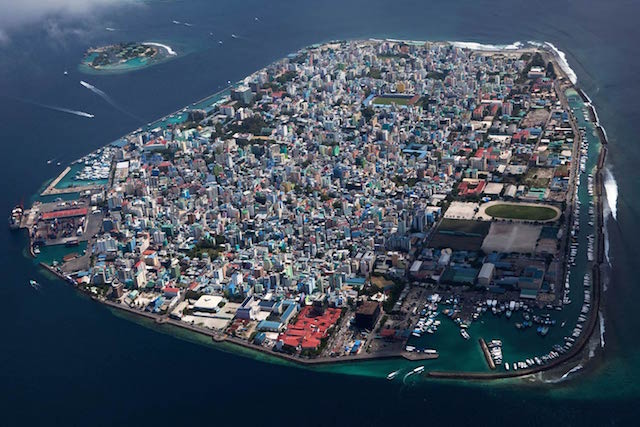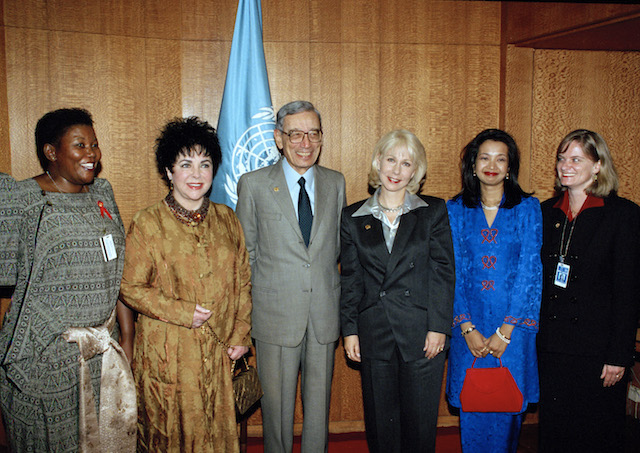By Somar Wijayadasa* | IDN-InDepthNews Analysis
Secretary-General Boutros Boutros-Ghali (third from right) meets with the keynote speakers at an event on the occasion of the World AIDS Day, with the theme “One world. One hope” on December 2, 1996 at the UN Headquarters. From left to right: Martina Clark; Marina Mahathir; Cristina Saralegui; Secretary-General Boutros Boutros-Ghali; Elizabeth Taylor and Noerine Kaleeba. | Credit: United Nations, New York – Photo # 158026
NEW YORK (IDN) – The World AIDS Day, observed on December 1 every year, inspires me to recall how the United Nations acted – hesitantly but resolutely – when the AIDS pandemic killed millions of people around the world causing a substantial impact on the health and economy of many nations.
Since the first identification of HIV/AIDS among gay men in the United States of America, in 1981, approximately 76 million people have been infected with HIV, and 39.6 million people have died of AIDS – the highest global death toll of all time, and also the most politicized, feared and controversial disease in the history of modern medicine.











